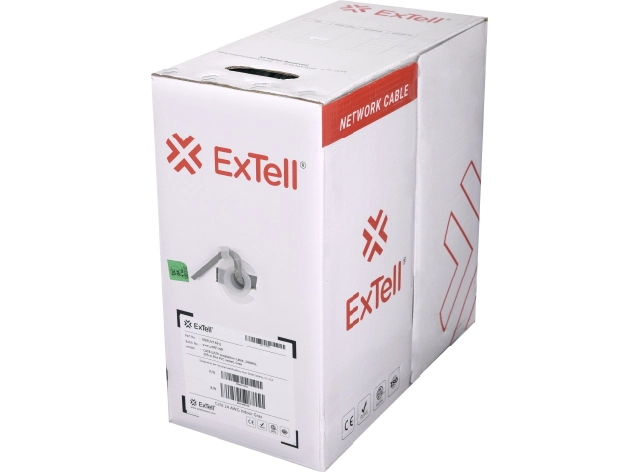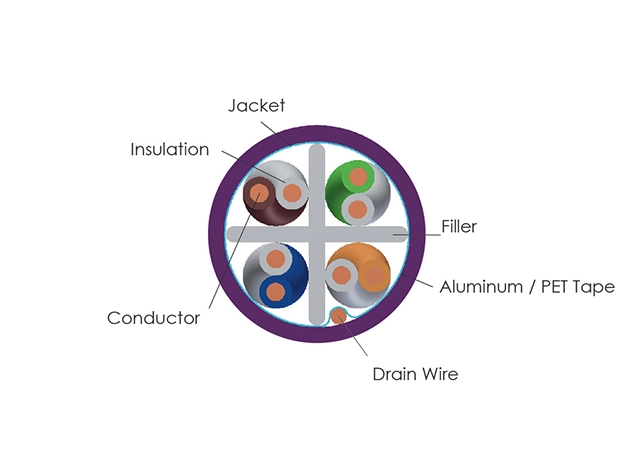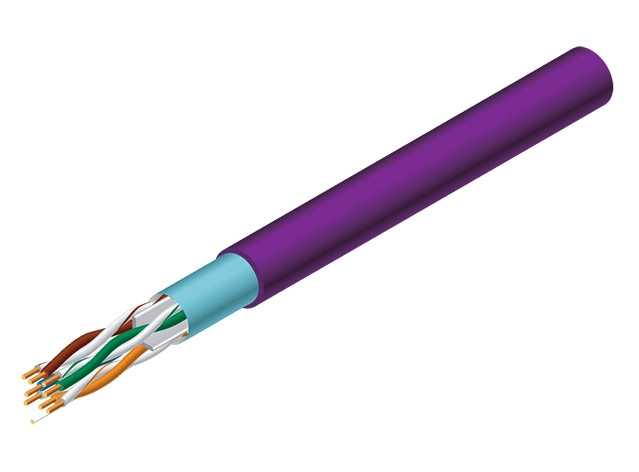Description
Product Overview
Product Variants
Downloads
FAQ’S
STANDARDS & APPLICATION
ELECTRICAL PROPERTIES
Resistance
7.0Ω/100m
Unbalance Resistance of pair
≤ 2%
Unbalance Resistance of pairs
≤ 4%
Dielectric of Conductors
DC1.0kV * 1min
Dielectric conductor to Ground
DC2.5kV ˙ 2min
Insulation Resistance 20°C 500V
≥ 5000 MΩ.KM
Mutual Capacitance of a Pair
≤ 5.6 pF/100m
Pair to Ground Unbalance Capacitance
≤160 pF/100m
CABLE STRUCTURE
| Conductor |
|
|
||||||||||||||||||||||
| Insulation |
|
|
|
|||||||||||||||||||||
| Twisted Pair |
|
|
|
|||||||||||||||||||||
| Separate | YES | |||||||||||||||||||||||
| Mylar Tape | YES | |||||||||||||||||||||||
| Drain Wire | YES, Material:CCA, Diameter:0.35mm | |||||||||||||||||||||||
| Shielding | YES, Material:AL Foil, Width:18mm | |||||||||||||||||||||||
| Rip Cord | YES | |||||||||||||||||||||||
| Sheath |
|
|
|
|||||||||||||||||||||
Product Variants
CAT 6 U/UTP Network Cable, 23AWG, PVC
CAT 6 U/UTP Network Cable, 23AWG, LSZH
CAT 6 F/UTP Network Cable, 23AWG, PVC
CAT 6 F/UTP Network Cable, 23AWG, LSZH
CAT 6 SF/UTP Network Cable, 23AWG, PVC
CAT 6 SF/UTP Network Cable, 23AWG, LSZH
CAT 6 U/UTP Outdoor Network Cable, 23AWG, PE
CAT 6 U/UTP Network Cable, 24AWG, PVC
CAT 6 SWA/UTP Network Cable, Steel Wire Armored, PE
CAT 6 U/UTP Elevator Cable, 23AWG
Downloads
FAQ’S
Lorem Ipsum is simply dummy text of the printing and typesetting industry. Lorem Ipsum has been the industry’s standard dummy text ever since the 1500s, when an unknown printer took a galley of type and scrambled it to make a type specimen book. It has survived not only five centuries, but also the leap into electronic typesetting, remaining essentially unchanged.



